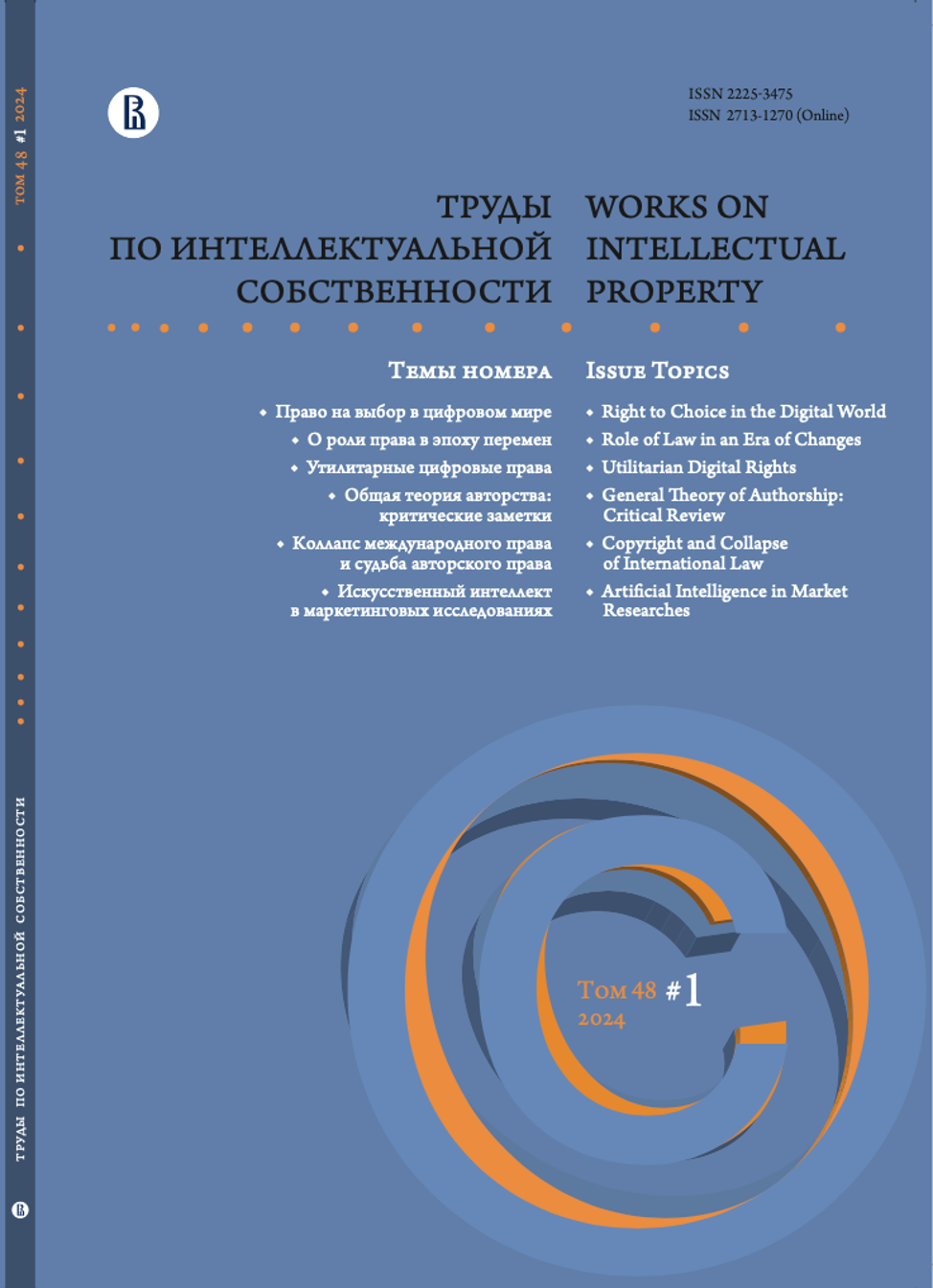THE RIGHT TO REFUSE FROM DIGITAL TECHNOLOGIES: THE RESULTS OF EXPERT SURVEY
Abstract
The article continues a series of publications based on the results of traditional expert surveys conducted by the UNESCO Chair on Copyright, Related, Cultural and Information Rights of the National Research University Higher School of Economics together with the law firm Nex- tons among participants in annual scientific and practical conferences on media law and intellectual property law. The article summarizes and analyzes the results of an expert survey conducted in the fall of 2023 and dedicated to the human right to choose when using digital technologies.
The thesis about the right to choice as a new generation of human rights is put forward and discussed. As part of the survey, respondents were asked ques- tions based on real examples of the implementation of digital technologies in various spheres of life in modern Russian society. Questions related to unmanned vehicles, the use of artificial intelligence for personnel selection, the use of voice assistants and chat bots for communication with the population, the integration of video surveillance and photographic recording systems into smart city projects, etc.
The results of the study showed that in most cases, respondents chose those answer options that provided individuals with the opportunity to refuse to use a particular technology. In general, the results obtained do not con- tradict the results of surveys conducted on similar topics in other jurisdictions.
The necessity is substantiated in the very near future to introduce in industry legislation the obligation to inform citizens about the use of certain digital technologies (for example, artificial intelligence technologies) and to create non-discriminatory conditions in the field of digitalization, where for persons who do not have the knowledge and/or ability to use them, there is always an alternative non-digital interaction will be provided.


